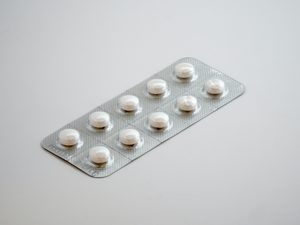It is common thing for us to load our bodies with vitamins and minerals in the cold season or when we
have a medical problem. The same thing we can do for our pets! We only want them to live as long and
as healthy as possible!
Most veterinarians recommend dog food supplements when pets suffer from certain health problems or
just need a boost. Most veterinary diets are complete and balanced and provide pets with the optimal
level of essential nutrients.
From puppies to seniors, dogs need a balanced diet to meet their nutritional needs. Dog food
supplements can be used as a supplement to your dog’s daily diet to ensure optimal levels of vitamins
and nutrients.
In this article, you will find out about dog food supplements, what are the different types of
supplements, when you can give supplements to your dog, and more.
What Are Dog Food Supplements?
Food supplements, regardless of their intended use, are nutraceuticals that contain micronutrients, macronutrients, and edible substances. In other words, these products are made out of a wide variety of combinations of vitamins, minerals, plant extracts, and other substances.
Most dog food supplements are prescribed depending on the pet’s weight. They are marketed as pills, tablets, capsules, liquids, or powders.
Food supplements complement a healthy diet but do not compensate for an unhealthy one.
Before buying dog food supplements, it is essential to talk to your veterinarian about the health status of your pet, but also to determine the compatibility of the supplements with other possible medications that your dog is taking.
Here are some things to keep in mind when shopping for dog food supplements:
– Dosage: some vitamins are harmful if taken in large doses, above the recommended daily dose.
– Side effects: some dog food supplements, although herbal, can have side effects without being associated with prescription drugs.
– Drug interaction: when food supplements are given with certain medications, the effects can be even more dangerous.
Are Dog Food Supplements Important?
Although pet food is supposed to provide your dog with all the nutrients it needs, there are times when a complex of multivitamins and minerals can help your fluff lead a healthier and happier life.
Dog food supplements should be adapted to your pet’s individual needs for each stage of its life, facilitating the transition from an energetic puppy to a mature, loyal, and wise adult dog.
Sometimes, your dog’s diet may need a boost to provide your pet with essential vitamins and minerals in optimal amounts. While fats and carbohydrates are part of dog food, some vitamins, fatty acids, and minerals can be eliminated during the preparation process.
But dog food supplements are not only about vitamins and minerals. Other types of supplements can aid certain medical conditions, such as liver, kidney, or urinary problems.
What Are The Different Types of Dog Food Supplements?
There is a wide variety of dog food supplements on the market, some of which promise to work wonders. Don’t trust those that promise to cure parvovirus, cancer, or other fatal diseases in dogs.
The most popular dog food supplements contain:
– Vitamins and minerals
– Fish oil
– Glucosamine and chondroitin
– Probiotics
– Antioxidants
Vitamins and Minerals For Dogs
Dog food supplements with vitamins and minerals are usually recommended for growing puppies (those with calcium and phosphorus) and senior dogs.
Dogs, like humans, need vitamins A, B (including B12 and B6), C, D, E, K, and a few minerals, but they need them in different amounts. Adding a multivitamin complex to your dog’s homemade diet can help create a balanced nutrition.
Fish Oil
Fish oil is the second most common supplement recommended for dogs and contains omega 3 and vitamins A and D.
It is mostly recommended for irritated skin, hair loss, and skin allergies.
Skin allergies that manifest through hair loss, itchiness, and irritated skin can cause discomfort to many dogs. While various external stimuli can irritate the skin, a supplement designed specifically for your dog’s coat can prevent the problem from spreading.
Dog food supplements that include fish oil, biotin, and amino acids can be a real help for the vital systems that fight common problems, such as:
- Bacterial infections
- Fungal infections
- Fleas and ticks
- Allergies to the environment
- Excessive shedding
- Dry skin
- Itching
If your dog is struggling with any of the above issues, Grizzly Omega Health for Dogs & Cats, Wild Salmon Oil/Pollock Oil Omega-3 Blend might help it improve its skin and coat.
Fish oil is not good only for the skin and hair but it also has benefits for eyesight, heart, nervous system, and joints.
If you have an elderly dog, Ark Naturals Brains Best Friend – Gray Muzzle can help improve its nervous system, especially memory and recognition processes.
Glucosamine and Chondroitin
These dog food supplements are designed to aid joints and bones, maintain mobility, and reduce joint stiffness that may occur as dogs get older.
Joint pain can affect dogs regardless of age, although older dogs, like humans, are more prone to arthritis. Symptoms of arthritis in dogs include:
- Joint pain
- Lameness
- Inability to move
- Limb atrophy
- Fever
- Lack of appetite
- Pneumonia
- Kidney disease
- Swollen lymph nodes
- Behavioral changes, such as unjustified aggression against other dogs or people
- Abundant sleep
If your dog starts to show signs of arthritis or joint pain, in addition to consulting a veterinarian, we recommend Ark Naturals Sea Mobility Joint Rescue Lamb Jerky. A supplement designed to restore the mobility of your beloved quadruped.
Probiotics
Probiotics are living microorganisms (“good bacteria”) that, when administered in adequate amounts, provide extra health to the body.
Dog food supplements with probiotics are recommended for dogs suffering from digestive problems (especially diarrhea) to help restore the intestinal microflora.
If your dog suffers from diarrhea or you just want to keep its digestive system balanced, Ark Naturals Gentle Digest for Dogs – 60 Capsules – Loving-Dogs.Com can help you achieve this goal.
Antioxidants
Antioxidants are a complex of vitamins, minerals, and enzymes that reduce the toxic effects of free radicals. One of the best-known antioxidants is coenzyme Q10.
They prevent the oxidation of cells that occurs due to the influence of external factors and aging, which can lead to memory loss and cognitive dysfunction. Antioxidants strengthen the immune system and reduce the risk of cancer and infection.If you have an elderly dog and want to help it fight against aging, Ark Naturals Heart Healthy Wags Plenty – Gray Muzzle is full of essential nutrients for senior dogs, including coenzyme Q10.
Other Dog Food Supplements That Are Recommended:
- Melatonin supplements – this dog supplement is administered to help with mild anxiety, phobias, or sleep disorders.
- Liver supplements – they provide liver support in dogs that are suffering from liver disease.
- Kidney and urinary supplements
- Heart supplements
- Oral supplements for dental health
If your dog is suffering from bad breath, plaque, or tartar, Ark Naturals Breath-Less Brushless Toothpaste can help your dog get rid of them and promote oral health.
Should I Give My Dog Food Supplements?
Sometimes out of a desire to do a good thing, we risk doing more harm.
Some supplements may cause side effects or interact with some medications.
That’s why it’s always a good idea to talk to your veterinarian before buying a product. They will evaluate your pet and perform various tests, such as rapid tests, x-ray, ultrasound, blood tests, and then recommend the right supplement and dose.
Dogs that eat a balanced and quality diet do not normally need supplements unless they suffer from a medical condition. Those who are fed a home-cooked diet may have some deficiencies, so they will need certain supplements to provide them with the essential nutrients they need to lead a healthy life.
Avoid supplements that are intended for humans because, in addition to different concentrations may also contain xylitol, an artificial sweetener that is toxic to dogs and can lead to death.
Bottom Line
Dog food supplements are designed for pets to improve their health and quality of life. Dogs that take supplements can be more playful, active, and happier.
Supplements can help dogs get through severe systemic diseases by boosting their body, helping improve their vision and nervous system, reducing joint pain, and promoting shiny fur and healthy skin.
Some supplements may also have side effects or may interact with certain medications. Therefore, it is recommended to talk to your veterinarian before buying a product.




